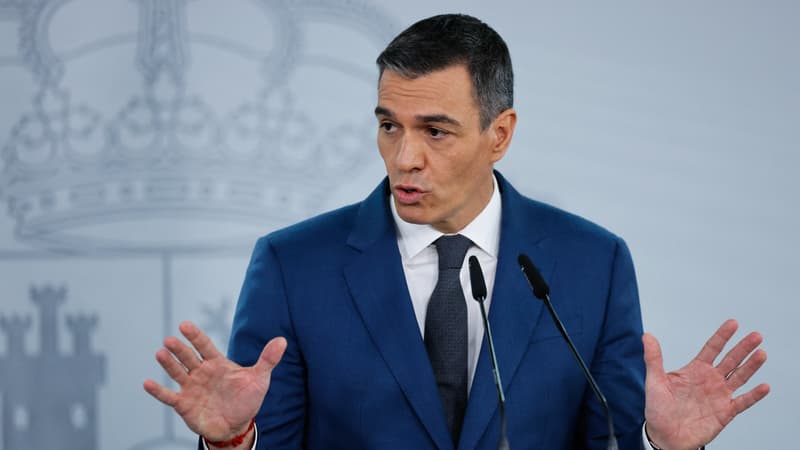The use of 5% defense and security expenses of the Gross Domestic Product (GDP), as required by NATO, is “unreasonable” for Spain, Prime Minister Pedro Sánchez said Thursday in a letter to the Secretary General of the Atlantic Alliance Mark Rutte.
“For Spain, commit to achieving a 5% goal would not only be unreasonable, but also counterproductive,” said the socialist leader in this letter sent a few days before a NATO summit in Hague before acting an increase in the security expense of the country of the alliance.
The country “will continue to fulfill its duty in the coming years and decades and continue to actively contribute to the European security architecture”, but “it cannot participate in a specific expenses objective in terms of GDP at this summit,” he adds.
“A more flexible formula”
In this letter, Pedro Sánchez defends the need for an “stronger” Atlantic alliance against “Putin’s cruelty and his total contempt for international law and human rights”, which “constitute an existential threat.”
But he believes that forcing all NATO member states to achieve the 5%objective, as Washington states, could be harmful to certain countries and ineffective for the safety of the alliance and, therefore, defends “a more flexible formula.”
The expenses of up to 2.1% of GDP are sufficient in the case of Spain to meet the objectives established by NATO in terms of military capacities, according to the Spanish Army, says the head of the Spanish Government.
“To make real progress, we will need time and maneuvering space,” argues Pedro Sánchez, who warns against a precipitous military purchase policy that could in particular “worsen the challenges of the interoperability of the equipment.”
The social cost of the defense budget
For Spain, in terms of other NATO countries, in addition, reaching 5% “will be impossible” without “an increase in taxes for the middle class” and “reductions in public services and social benefits”, which probably hinders economic activity, details.
However, this would be equivalent to weakening the country’s ability to invest in the defense sector, it emphasizes Pedro Sánchez, for whom the “main objective” should guarantee high growth in member states to “increase real expenditure sustainably.”
But “as a sovereign line, we chose not to do so,” concludes Prime Minister, who confirms the advanced position in recent weeks by his Defense Minister Margarita Robles.
The proposal of the secretary general of the NATO Mark Ritte, in which the 32 countries of the Alliance will have to govern on June 24 and 25, consists in bringing the military spending Stricto sensu to 3.5% of GDP in 2032, and 1.5% of GDP with those related to the general sense.
Source: BFM TV


